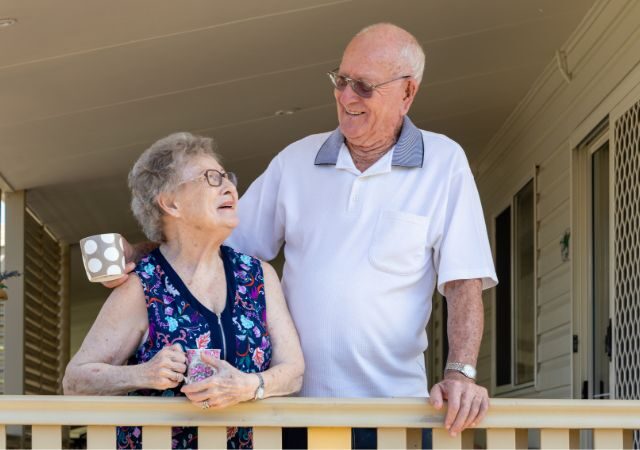As the aging population grows, finding ways to support seniors in maintaining their independence and quality of life becomes increasingly important. For older persons seeking help, home care options provide a feasible option to remain in their homes. This approach allows seniors to preserve their autonomy and engage in daily activities with minimal disruption. This article will examine various home care strategies that can boost senior independence and overall well-being.
Improving Senior Independence With Home Care Solutions
Customizing Care Plans

A tailored care plan is essential for addressing each senior’s individual needs. This personalized approach involves evaluating the senior’s medical history, lifestyle preferences, and specific care requirements. A well-crafted care plan may include help with daily activities such as bathing, dressing, meal preparation, medication management, and coordination with healthcare providers. Customizing the care plan ensures the senior receives appropriate support while maintaining independence. Regular updates and reviews are necessary to adapt the plan as the senior’s needs change.
Adapting Homes for Accessibility
Modifying a home to enhance accessibility is crucial for promoting independence among seniors. Changes such as installing grab bars in bathrooms, widening doorways for wheelchair access, and adding ramps can significantly improve safety and ease of movement. Installing enough illumination and minimizing trip risks may also avoid accidents. These modifications facilitate easier navigation and boost the seniors’ confidence and comfort in their living environment.
Read Also:- 8 Best Resources For Family Caregivers Of Elderly Parents
Professional In-Home Health Services
Through in-home health services, seniors over 65 can stay in their own homes while getting professional medical care. These services can include routine health monitoring, physical therapy, and specialized medical treatments. Skilled nurses and therapists can visit the senior’s home to provide care, which helps manage chronic conditions, aid recovery from illness or surgery, and maintain overall health. This approach minimizes the need for hospital visits and supports the senior in leading a stable and familiar life.
Companionship and Social Engagement
Social interaction is crucial for the emotional and mental well-being of seniors. Aging people often feel lonely and alone, but companionship services can help ease those feelings. Caregivers and companions provide practical assistance, meaningful conversation, recreational activities, and emotional support. This interaction can improve mood, reduce feelings of depression, and enhance the senior’s quality of life. Activities might include engaging in hobbies, playing games, or simply sharing time together.
Utilizing Technology for Monitoring

Technology is a big part of helping seniors stay independent. Wearable devices such as emergency alert systems and fitness trackers offer reassurance to both seniors and their families. These tools can alert caregivers or emergency services if a fall or health issue occurs. Home automation systems can also enhance comfort and safety by managing lighting, temperature, and security. Embracing these technological advancements can help seniors maintain independence while ensuring they receive necessary oversight.
Involving Family in Care
Family involvement is a key component of effective home care. Clear communication between family members, caregivers, and the senior ensures that everyone is aligned on the care plan and any changes in the senior’s condition. Regular family meetings provide a platform to discuss concerns, share updates, and make collective decisions about care. Involving family members supports the senior, strengthens family bonds, and provides additional emotional support.
Planning for Care Costs
Financial planning is essential for managing the costs of home care services. Understanding the expenses of various care options and exploring funding possibilities such as insurance, government programs, or personal savings can help families prepare. Effective financial planning ensures that seniors receive the care they need without imposing an undue financial burden. Consulting with a financial advisor or care coordinator can provide guidance on managing these costs effectively.
Training and Supporting Caregivers
Proper training and support for caregivers are vital for delivering high-quality care. Training ensures that caregivers have the skills and knowledge needed to meet the senior’s needs, including handling specific medical conditions and implementing caregiving techniques. Additionally, offering support resources such as counseling and caregiver support groups can help caregivers manage their role’s emotional and physical demands. Caretakers who are well-supported are better able to give considerate and effective care.
Read Also: 8 Best Practices For Managing In-home Senior Care
Addressing Legal and Ethical Issues

Legal and moral issues play a big role in home care. Addressing issues such as consent, confidentiality, and decision-making authority is crucial. Ensuring that legal documents, such as power of attorney and advance directives, are in place can help navigate complex situations and respect the senior’s wishes. Adhering to ethical standards in caregiving protects the senior’s rights and dignity while ensuring care is delivered with professionalism and respect.
Conclusion
Home care solutions are essential in helping seniors maintain their independence while receiving the support they need to live comfortably and safely. By focusing on personalized care plans, home modifications, professional in-home health services, companionship, technology, family involvement, financial planning, caregiver support, and legal considerations, families can create an environment that fosters the well-being and autonomy of their elderly loved ones. Implementing these solutions improves seniors’ quality of life and provides peace of mind for families and caregivers.
FAQs
What are some common modifications to improve home accessibility for seniors?
Common modifications include adding bathroom grab bars, widening doorways, installing ramps, improving lighting, and eliminating tripping hazards. These changes help seniors navigate their homes more safely and independently.
How can technology assist in-home care for seniors?
Technology can aid home care through devices like emergency alert systems and fitness trackers that monitor health and alert emergency services. Automation systems for homes can also control the temperature, lights, and security, making the home safer and more comfortable.



